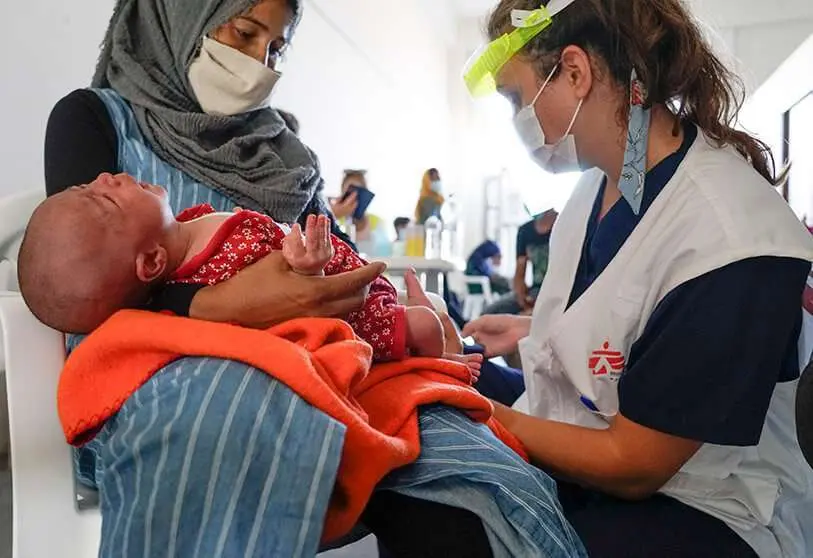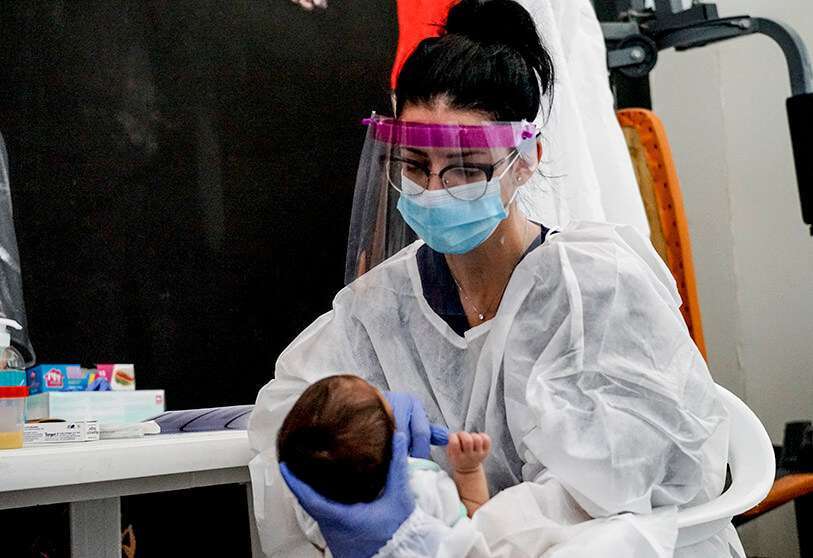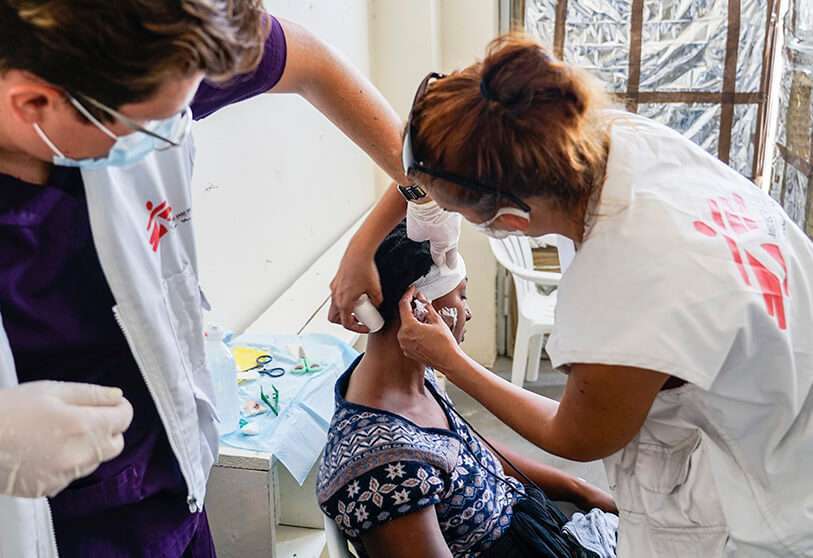MSF rejects the "new Moria" and calls for accelerated asylum decisions

A week ago, the Moria refugee camp burned to the ground, burning tents and the belongings of all the refugees waiting at the gates of Europe for an international asylum resolution.
After the fire, the authorities have started to move hundreds of people to a new Moria in a police operation started yesterday morning. The EFE agency reported yesterday that almost half of the refugees from Moria were already resettled in the new camp, which is still under construction.
For its part, Médecins Sans Frontières (MSF), which is working on the ground to care for the refugees, is rejecting the installation of a new camp and is asking European states to evacuate all the people from Lesbos and the other Greek islands.
During the transfer from one camp to another, for several hours, the NGO denounces that they could not access the clinic where thousands of people sleep outdoors. "It is worrying that a police operation has become a priority over providing medical care to a population at risk," said Stefano Argenziano, MSF's Operations Coordinator.
Finally, medical teams have been able to open the clinic and resume medical consultations for essential services. Between 12 and 16 September, MSF teams carried out 508 consultations in the newly established clinic. Among the patients, men, women and children at risk, teams saw injuries from trauma, skin diseases, obstetric problems and chronic pathologies.
"The situation was bad already in Moria and it is worse now. The patients we had in follow-up have worsened. For example, we have been treating mental health patients who had suffered panic attacks in the past and who, these days, have experienced more intense episodes that are more difficult to calm down. We have seen children with epilepsy who have suffered seizures during these days on the street, women with risky pregnancies and who do not have their medication. This is the case of pregnant women with diabetes who sleep outdoors, without food, water and insulin," explains Francisca Bohle Carbonell, MSF's head of nursing in Lesbos.

Following the fires in Moria on 9 and 10 September, thousands of people have been forced to sleep on the streets with almost no assistance, no hygiene or sanitation facilities.
The Greek and European authorities are trying to prevent people from dispersing in Lesbos. To this end, they have started the construction of a new camp and have stated that only those people who decide to register in the new centre will have access to some kind of service and asylum procedures.
"What people are asking for, what these people need, is not to be locked up in another camp. These people need to be evacuated and taken to a safe place in Greece or in other European countries," explains Carbonell.
Médecins Sans Frontières is calling for the creation of new migration policies starting with the evacuation of all people in Lesbos and the other Greek islands. "If they build a new containment centre in the style of what Moria was, we will once again face a new crisis and the damage to physical and mental health that we have been seeing for five years," warns Raquel González, head of external relations at MSF.

Five years after the migration restrictions agreed with Turkey, inhumane reception conditions and constantly changing asylum procedures have led to a management disaster that is causing "immense suffering", MSF complains. "In all this time, on the ground we have only seen more human suffering, a routine of humiliation, xenophobia, violence and unworthy living conditions," Raquel stresses.
The new camps should be transit or pre-relocation centres, not closed facilities aimed at confinement and deterrence as hotspots (identification and registration centres) have been in the Aegean islands.
"Today, because of the numbers of arrivals in Europe, we cannot speak of a refugee or immigration crisis," insists MSF's head of external relations. What has always existed is a crisis in the European response, which has forgotten the inclusion of basic elements of protection and dignified treatment for these people".
Several countries and communities in Europe have expressed their willingness to welcome people in search of security. "The time has come for EU countries to acknowledge the failure of deterrence policies and to stop using immigration in their short-term political calculations. Enough is enough.
Today, more than thirty NGOs will gather in front of the European Union headquarters in Madrid to demand that the Spanish government share responsibility for the reception and support of asylum seekers in the Moria refugee camp in Greece.
In a statement, these social organisations, which reject the creation of a new refugee camp, consider that the EU must address "an urgent and immediate plan" for the relocation of these people, "many of them minors and groups at risk", who must be moved to a safe place.








